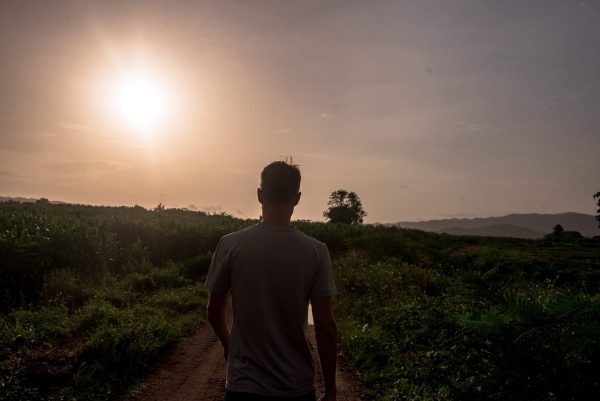Put People and the Environment over Profits: Legal Mechanisms Still Lacking for Earth Rights Defenders in Southeast Asia
Put People and the Environment over Profits: Legal Mechanisms Still Lacking for Earth Rights Defenders in Southeast Asia
In the past year or so, Cambodian earth rights defenders (ERDs) and other human rights defenders (HRDs), have been facing challenges they would never have anticipated some years ago. Provincial authorities monitored and cancelled community trainings, police officers searched NGOs offices in the capital, Phnom Penh, looking for community members. Activists were threatened with arrest, leading some to leave the country. Critical and independent media outlets were closed down.
The operations of Equitable Cambodia, an NGO advocating for community rights, were suspended in September 2017. The official reason for their suspension was noncompliance with the infamous LANGO (Law on Associations and NGOs) but it was no secret that the real reason was linked to the organization’s campaign related to land disputes involving a sugar company owned by a senator from Cambodia’s ruling party, and the impact of this campaign on sugar trade with the European Union. Equitable Cambodia was only allowed to operate again in March of this year. The shrinking of political space has been especially dramatic in Cambodia but a similar trend can be seen in other countries in the region, and ERDs and other HRDs are bearing the brunt of this repression.
This year marks the 20th anniversary of the United Nations Declaration on Human Rights Defenders, or as it is formally called, the Declaration on the Right and Responsibility of Individuals, Groups and Organs of Society to Promote and Protect Universally Recognized Human Rights and Fundamental Freedoms. The Declaration has contributed tremendously to the recognition of activists, lawyers, teachers, fisher folk, farmers, and all others standing up to promote and protect human rights, despite the challenges and against all the odds.
The First Legally-binding Agreement on Environmental Rights
In early March of this year, 24 countries in Latin America and the Caribbean adopted LAC P10, a Regional Agreement on Access to Information, Public Participation and Access to Justice in Environmental Matters. The first legally-binding agreement on environmental rights, LAC P10 includes sections on protecting ERDs, improving access to environmental information, and extending public participation in environmental decision-making.
The day after LAC P10 was signed, John Knox ended his term as UN Special Rapporteur on Human Rights and the Environment and presented a report with the first ever Framework on Principles on Human Rights and the Environment. Knox’s Framework sets out the basic obligations of states under human rights law as they relate to a safe, clean, healthy and sustainable environment. These include the obligation of states to provide a safe and enabling environment for ERDs to operate free from threats, harassment, intimidation and violence.
But while LAC P10 and this Framework are positive steps towards the recognition and better protection of ERDs, the general trend continues to be one of increased repression and violence. With the ongoing scramble for natural resources, the courageous people defending the environment and their traditional ways of life will also continue to face threats. Indeed, civil society actors in the Americas are skeptical of the impact of LAC P10 given the systematic violence and persistent impunity in the region.
ASEAN and Earth Rights Defenders
In Southeast Asia, and globally, political space has narrowed significantly in the past five years and little progress has been made to strengthen institutional support for ERDs. The region lacks a well-developed intergovernmental human rights system such as those in the Americas, Africa, and Europe with treaties, courts, commissions and other institutions. The ASEAN Intergovernmental Commission on Human Rights, established in 2009, is largely toothless and has failed to address human rights issues in any meaningful way. The principle of non-interference and a reference to so-called “Asian values” are falsely used to justify failures to officially acknowledge, let alone address human rights abuses, though they are so frequent in the region.
At the national levels things aren’t much better. Only the National Human Rights Institutions (NHRIs) of Indonesia and the Philippines have been accredited with an A status by the Global Alliance of NHRIs, to show that they fully comply with the Paris Principles. The Paris Principles, adopted by the UN General Assembly in 1993, is a set of standards that determines national human rights institutions’ credibility and legitimacy. The Paris Principles look at aspects such as independence from government, selection and appointment process of commissioners, adequacy of funding and the scope of an institution’s human rights mandate. Under the Presidency of Rodrigo Duterte, however, the Philippines’ Commission will most likely lose its A status – it was recently announced that their government funding would be reduced to a mere 1,000 pesos or 20 US dollars, which most commentators agree is punishment for the institution’s staunch criticism of the thousands of extrajudicial killings resulting from Duterte’s “war on drugs.” More recently, in February 2018, Duterte’s administration issued a petition labeling more than 600 people as terrorists. This list includes UN Special Rapporteur on the Rights of Indigenous Peoples Victoria Tauli-Corpuz and other indigenous rights defenders. Thailand and Myanmar’s NHRIs have been accredited with B status being only partially compliant, whereas other countries in the region do not even have a commission to speak of.
NHRIs are important channels for ERDs and other HRDs to file complaints and get due recognition for their role in promoting and defending human rights. NHRIs often play an important role in advocating for better HRD protection, including through formal legislation. The Indonesian NHRI Komnas Ham, for instance, has been trying to include HRDs in the revision of the country’s 1999 Human Rights Law. In other parts of the world, particularly in Latin America, HRD laws already exist and even though there is much to improve in terms of their implementation, legal recognition is an important step forward in HRD protection.
International Mechanisms
Lacking formal and effective national and regional mechanisms, ERDs and other HRDs in Southeast Asia resort to international mechanisms, especially the UN Special Mechanisms and in particular the Special Rapporteur on the Situation of HRDs. Following the European Union, who adopted the EU Guidelines on HRDs in 2004, several other countries, including Norway and the US, adopted similar guidelines spelling out how their foreign missions should support HRDs in host countries. This support typically includes funding, trial observations and field visits to increase defenders’ visibility, but can also lead to public statements when attacks on HRDs or civil society are especially worrisome.
Complaint mechanisms of international financial institutions and intergovernmental organizations such as the OECD (Organization for Economic Co-operation and Development) seem to be slowly making some progress in incorporating ERD protection into their existing frameworks and mechanisms. The Compliance Advisor/Ombudsman of the International Finance Corporation (IFC), for instance, carried out a consultation on how to better protect complainants from retaliation and violence. Similar efforts have been undertaken by the European Investment Bank and the World Bank Inspection Panel. However, as the overall effectiveness of these mechanisms leaves a lot to wish for, the benefit for ERDs remains doubtful.
Finally, the UN Guiding Principles on Business and Human Rights do not explicitly mention HRDs, but many organizations advocating for the Guidelines to become a binding mechanism are also calling for their inclusion, covering whistle blowers, affected community members and advocates affected by projects.
ERDs in Southeast Asia continue to rely on their immediate networks, from the local to the international levels, and the importance of this solidarity for their safety and security should not be underestimated. In the case of Cambodia, advocacy efforts, including those with Western embassies, are widely believed to have had some positive impact, leading the Government of Cambodia to reduce some of the threats. Such actions, however are not sustainable, if only for the simple reason that diplomatic missions usually have their own vested interests and cannot always be relied on to side with ERDs. Other international stakeholders, such as INGOs, on the other hand, face plenty of restrictions themselves and unfortunately have only limited leverage with national governments. Binding and specific HRD mechanisms are needed to create a consistent and reliable recourse for at-risk ERDs to correct power imbalances, end impunity and put people and the environment over profits.
Photo: Chut Wutty, one of Cambodia’s most vocal environmental activists, was killed just over six years ago, on April 26th, 2012. Photo by Global Witness.






